AUGUSTA — Lois Taylor, a former quilter, has organized every edition the annual Fall Holiday Arts and Craft Fair since it started in the early 1980s.
“I did sell years ago but business got too busy,” she said. “I’m out of the game now; I’m busy with (the fair) all of the time.”
The 38th installment of the fair was held on Saturday and Sunday at the Augusta Armory. Taylor, who now plans the event with her son Steven, said the event is a far cry from what it was in the ’80s, especially on the administrative side.
“I started with a typewriter and now I deal with phone calls on cellphones, and websites,” she said.
Taylor said years ago there were only a handful of craft shows every year, but now a lot of churches and local schools have an annual event. The up-tick in events has led to artisans transitioning from hobbyists looking to cover costs to businesses looking to cut a profit.
Jim McConnon, a professor of economics at the University of Maine, studies microbusinesses — businesses with 1-5 employees including the owner — and says that they make up more than a fifth of the State’s employment, higher than the national average. Many of the businesses at last weekend’s craft fair would fall into this category.
About 40 vendors peddled their goods at this weekend’s craft fair, including jewelry, food, specialty party hats and home decor.
One creative item was the MyFootsie, a feet-sized sleeping bag for someone with perpetually cold feet designed by Manchester’s Paul Wade. Wade’s product, which is made in Skowhegan, sold its first unit at last year’s edition of the craft fair. Wade is the only employee of the business, holding all the patents and trademarks himself.
“I always had cold feet in bed, so I said I gotta do something about this,” he said Sunday.
McConnon said he has worked with artisans to help thoughtfully price their products at workshops with the Maine Crafts Association. Wade said no one has complained about his $35 to $40 price point, but admits outsourcing the labor overseas would make his product much cheaper.
“Somebody that’s in competition can manufacture in China for about a tenth of how I get it done. It’s expensive to manufacture in the United States, but it’s worth it because … Maine people made those,” McConnon said.
Wade’s business advertises and sells on a number of platforms, but will rarely cover the cost of a craft show and is struggling to turn a profit in its first year of sales. Wade said he would like to get on the television show “Shark Tank” and eventually have someone buy out his company. But for now, craft fairs are the first step to getting the word out about MyFootsie.
He said fellow vendors at the fair are too busy with other commitments to spend all of their timing crafting their product. Because of that, marketing, packaging, logo and business strategy are essential to cutting a profit at craft fairs.
“Most of these people don’t sit here all day knitting,” he said. “It’s a way some of these people making a living.”
McConnon said Maine fosters micro-businesses — specifically crafters — because the state offers such diverse products, like high quality materials to make crafts with and rich farmland, to “creative, independent and innovative” people who call the state home.
“Maine people, generally, are independent,” he said. “One way to show your independence is to get creative and start a small business.”
Farmington’s Birds of a Feather Emu Farm, an example of Maine’s diverse farms, gradually built to a point where it was creating commercial products at craft fairs, according to owners Rita Mathon and Richard Merrow. The company raises emu to be sold as meat and use their fat to make anti-inflammatory oils and lotions.
The pair said their company does six or seven craft shows a year and his company is starting to see a profit after a lackluster 2017. Richard Merrow said a big challenge is introducing a relatively foreign emu market to consumers, then his emu-derived products.
Richard Merrow, admittedly a professional and not a hobbyist farmer, said that he was “hesitant” about joining craft shows because he didn’t believe his marketing and products were at a professional point when the couple began farming eight years ago. The company eventually began attending shows in 2016.
“As we visited several different craft shows, we noticed that we could fit in at certain fairs,” he said.
But good products come at a premium. The craft industry thrives in Maine, McConnon said, because people are willing to spend the extra money for a quality product. He said artisan industries also get a bump from tourism in Maine.
“There’s a lot of people that come into this state and, in general, their demographic is such that have relatively high incomes.” McConnon said. “They really appreciate their experience in Maine and … the products they see are of high quality and they are willing to pay for them.”
Otisfield-based Manna Breads offers artisan gluten-free breads and baked goods. Owner Sheila Sprague started the company last year when her husband, who is gluten-intolerant, grew tired of bland gluten-free bread. This weekend’s craft fair was their first show. While that may seems like a first step for a budding business, a commercial bakery is already in the works and their goods are already in seven stores.
Sprague said her online sales center around Shrewsbury, Mass. She said a visitor to Maine found some of her products in Maine and now regularly stocks up on bread.
Heidi Potvin, of Sabattus’ #DoingIt4TheDogs, was at the fair selling an all-natural tick spray. Her product was born from a number of tick-related problems within the last year.
“My dog had a seizure on Bravecto (a brand of flea and tick protection) last year,” she said. “Then my husband, last summer, was diagnosed with Lyme disease.”
Potvin was attending her first craft fair as a business, but she has regularly visited fairs for more than 25 years and usually looks for holiday gifts. She said handmade products make more meaningful presents.
“I like the (fairs) that are more craft-based,” she said. “I like to give a gift to someone that’s not from Kohl’s.”
McConnon developed methodology that estimates the number of microbusinesses and total number of employees that is used in every state. According to nationwide study by McConnon from 2016, 18.9 percent of total employees in the nation — more than 36 million jobs — are working for microbusinesses.
In Maine, that number is higher than the national average. McConnon found that 21.6 percent of jobs — 176,048 — in Maine are being offered by microbusinesses. That number is the second highest in New England, only trailing Vermont’s 21.8 percent. Since the study started in 2003, Maine’s total has grown by 0.3 percent.
While the changes to craft fairs have been tangible, some products and strategies never change.
Ron Leeman, who runs Wiscasset’s Forgotten Recipes, said he hasn’t changed his strategy or his wild Maine blueberry jam recipe in the 20 years he has worked craft fairs. His jam recipe is nearly 100 years old and started with his grandmother, who passed it down to his mother, who passed it to her children.
Leeman said he would put his blueberry jam up against any competitor and beat them — and it has, racking up several awards for quality.
He said craft fairs have probably “slowed up a little bit” over the past two decades, which he attributed to the popularity of buying artisan products online on platforms like Etsy. Nonetheless, he said he usually covers the cost of buying a booth at a craft fair.
“Sometimes you get a pleasant surprise,” he said of earning unexpected profit.
Sam Shepherd — 621-5666s
Twitter: @SamShepME
Send questions/comments to the editors.


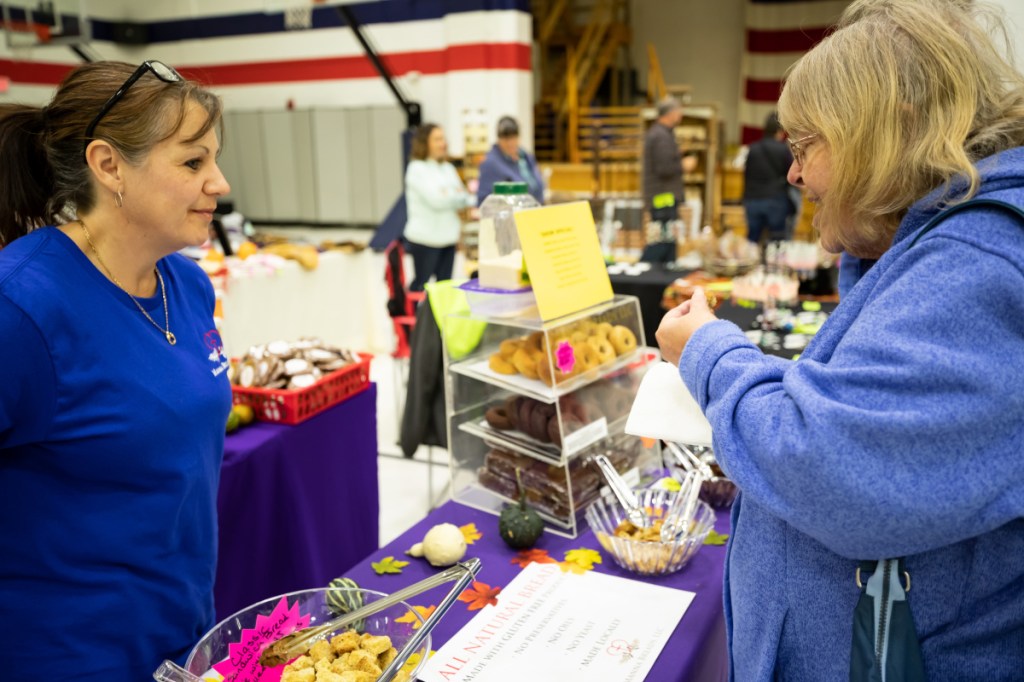
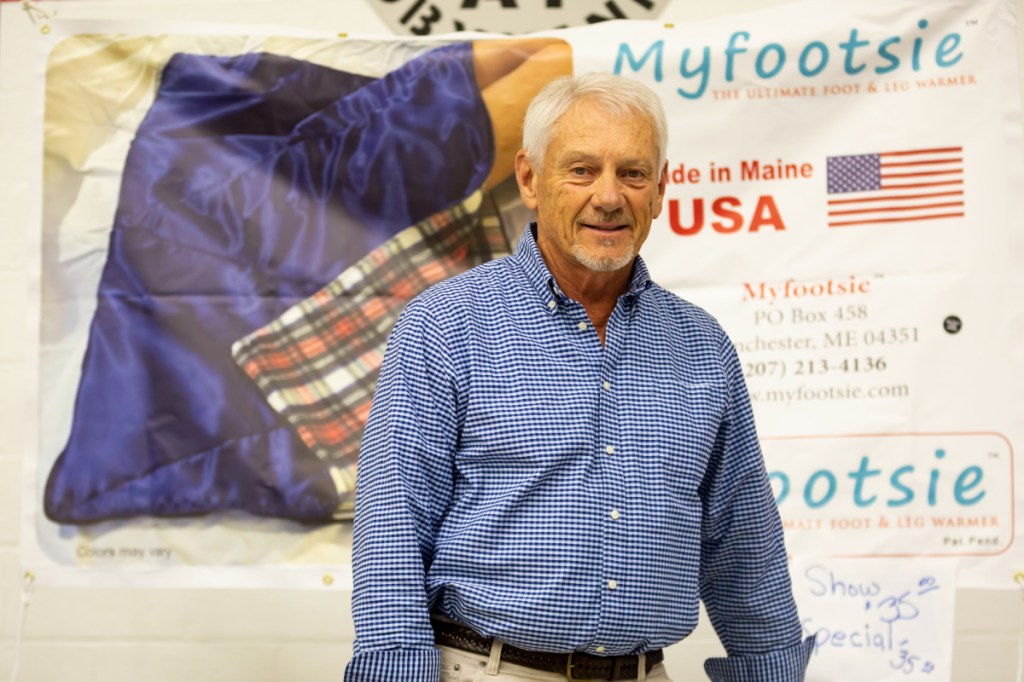
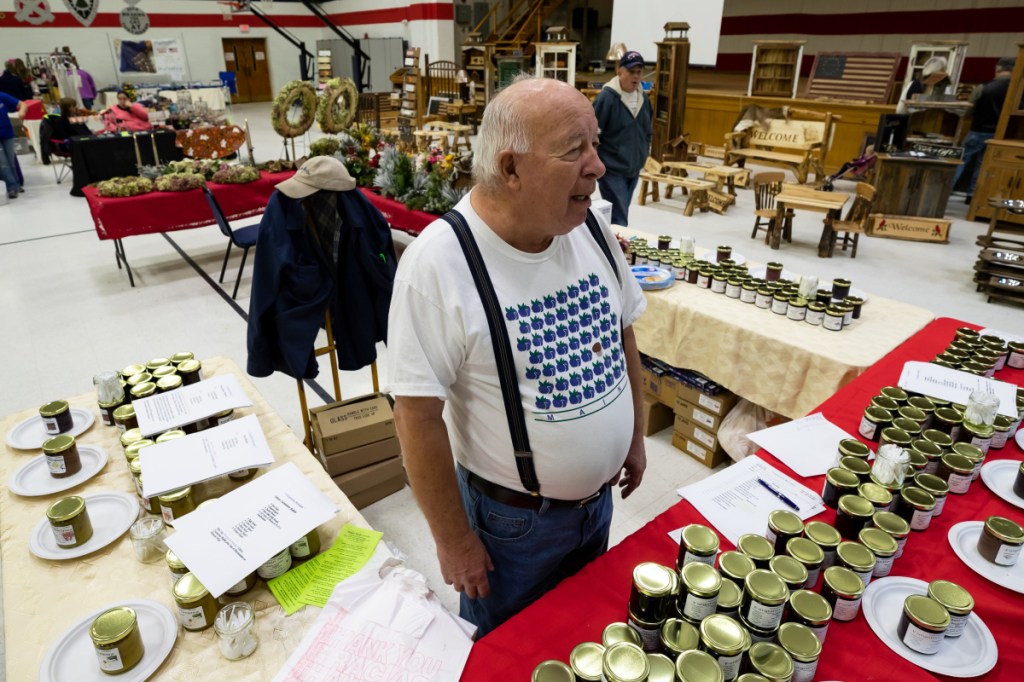
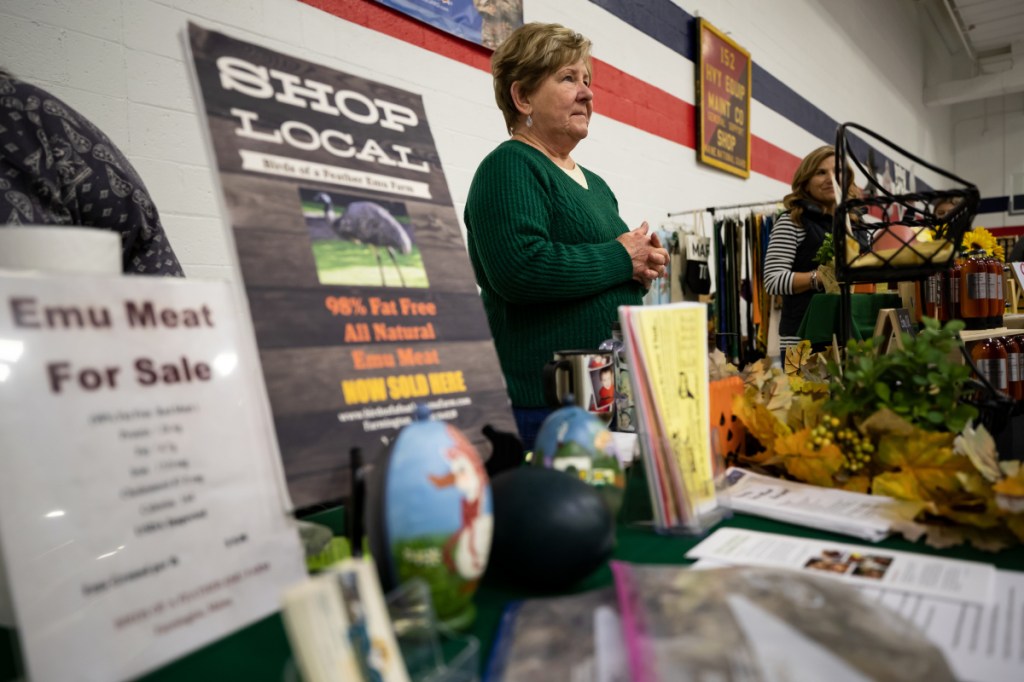
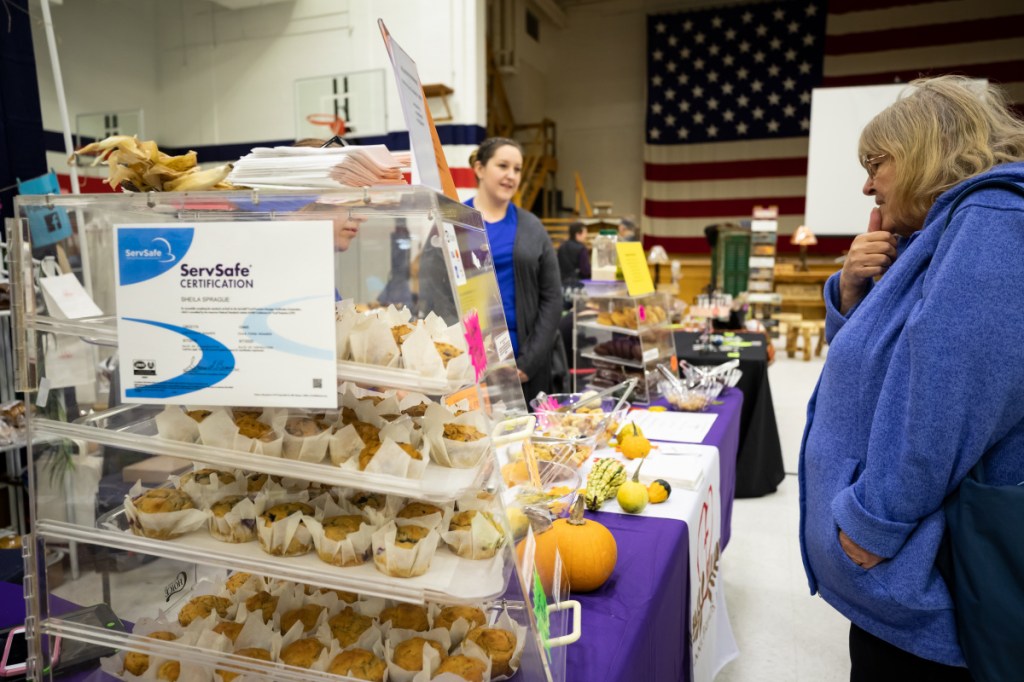

Success. Please wait for the page to reload. If the page does not reload within 5 seconds, please refresh the page.
Enter your email and password to access comments.
Hi, to comment on stories you must . This profile is in addition to your subscription and website login.
Already have a commenting profile? .
Invalid username/password.
Please check your email to confirm and complete your registration.
Only subscribers are eligible to post comments. Please subscribe or login first for digital access. Here’s why.
Use the form below to reset your password. When you've submitted your account email, we will send an email with a reset code.